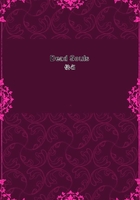
第114章
For Selifan, however, the place had a charm of a different kind. That is to say, each evening there would take place in the village a singing of songs and a weaving of country dances; and so shapely and buxom were the maidens--maidens of a type hard to find in our present-day villages on large estates--that he would stand for hours wondering which of them was the best. White-necked and white-bosomed, all had great roving eyes, the gait of peacocks, and hair reaching to the waist. And as, with his hands clasping theirs, he glided hither and thither in the dance, or retired backwards towards a wall with a row of other young fellows, and then, with them, returned to meet the damsels--all singing in chorus (and laughing as they sang it), "Boyars, show me my bridegroom!" and dusk was falling gently, and from the other side of the river there kept coming far, faint, plaintive echoes of the melody--well, then our Selifan hardly knew whether he were standing upon his head or his heels. Later, when sleeping and when waking, both at noon and at twilight, he would seem still to be holding a pair of white hands, and moving in the dance.
Chichikov's horses also found nothing of which to disapprove. Yes, both the bay, the Assessor, and the skewbald accounted residence at Tientietnikov's a most comfortable affair, and voted the oats excellent, and the arrangement of the stables beyond all cavil. True, on this occasion each horse had a stall to himself; yet, by looking over the intervening partition, it was possible always to see one's fellows, and, should a neighbour take it into his head to utter a neigh, to answer it at once.
As for the errand which had hitherto led Chichikov to travel about Russia, he had now decided to move very cautiously and secretly in the matter. In fact, on noticing that Tientietnikov went in absorbedly for reading and for talking philosophy, the visitor said to himself, "No--I had better begin at the other end," and proceeded first to feel his way among the servants of the establishment. From them he learnt several things, and, in particular, that the barin had been wont to go and call upon a certain General in the neighbourhood, and that the General possessed a daughter, and that she and Tientietnikov had had an affair of some sort, but that the pair had subsequently parted, and gone their several ways. For that matter, Chichikov himself had noticed that Tientietnikov was in the habit of drawing heads of which each representation exactly resembled the rest.
Once, as he sat tapping his silver snuff-box after luncheon, Chichikov remarked:
"One thing you lack, and only one, Andrei Ivanovitch.""What is that?" asked his host.
"A female friend or two," replied Chichikov.
Tientietnikov made no rejoinder, and the conversation came temporarily to an end.
But Chichikov was not to be discouraged; wherefore, while waiting for supper and talking on different subjects, he seized an opportunity to interject:
"Do you know, it would do you no harm to marry."As before, Tientietnikov did not reply, and the renewed mention of the subject seemed to have annoyed him.
For the third time--it was after supper--Chichikov returned to the charge by remarking:
"To-day, as I was walking round your property, I could not help thinking that marriage would do you a great deal of good. Otherwise you will develop into a hypochondriac."Whether Chichikov's words now voiced sufficiently the note of persuasion, or whether Tientietnikov happened, at the moment, to be unusually disposed to frankness, at all events the young landowner sighed, and then responded as he expelled a puff of tobacco smoke:
"To attain anything, Paul Ivanovitch, one needs to have been born under a lucky star."And he related to his guest the whole history of his acquaintanceship and subsequent rupture with the General.
As Chichikov listened to the recital, and gradually realised that the affair had arisen merely out of a chance word on the General's part, he was astounded beyond measure, and gazed at Tientietnikov without knowing what to make of him.
"Andrei Ivanovitch," he said at length, "what was there to take offence at?""Nothing, as regards the actual words spoken," replied the other. "The offence lay, rather, in the insult conveyed in the General's tone."Tientietnikov was a kindly and peaceable man, yet his eyes flashed as he said this, and his voice vibrated with wounded feeling.
"Yet, even then, need you have taken it so much amiss?""What? Could I have gone on visiting him as before?""Certainly. No great harm had been done?"
"I disagree with you. Had he been an old man in a humble station of life, instead of a proud and swaggering officer, I should not have minded so much. But, as it was, I could not, and would not, brook his words.""A curious fellow, this Tientietnikov!" thought Chichikov to himself.
"A curious fellow, this Chichikov!" was Tientietnikov's inward reflection.
"I tell you what," resumed Chichikov. "To-morrow I myself will go and see the General.""To what purpose?" asked Tientietnikov, with astonishment and distrust in his eyes.
"To offer him an assurance of my personal respect.""A strange fellow, this Chichikov!" reflected Tientietnikov.
"A strange fellow, this Tientietnikov!" thought Chichikov, and then added aloud: "Yes, I will go and see him at ten o'clock to-morrow; but since my britchka is not yet altogether in travelling order, would you be so good as to lend me your koliaska for the purpose?"